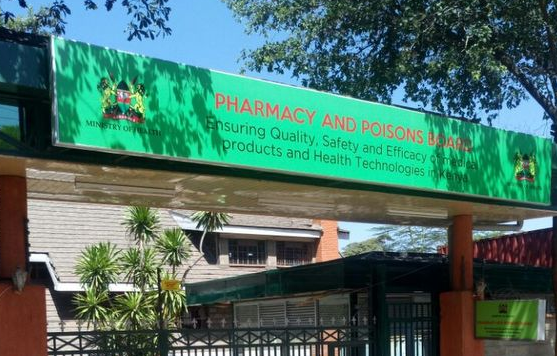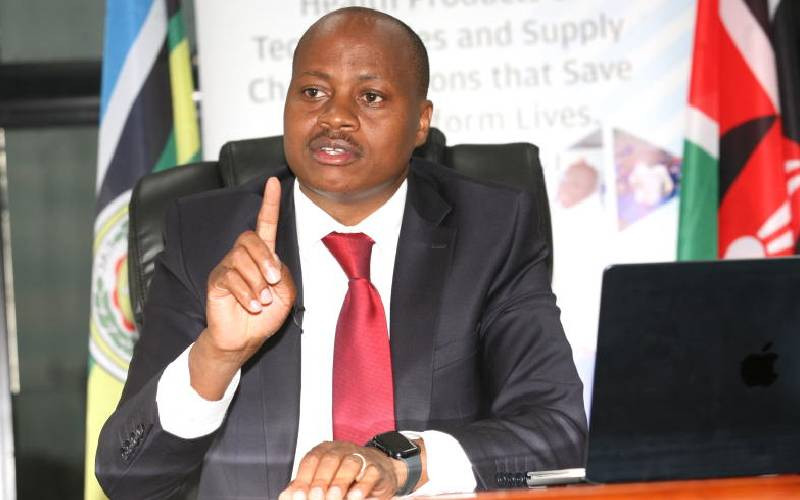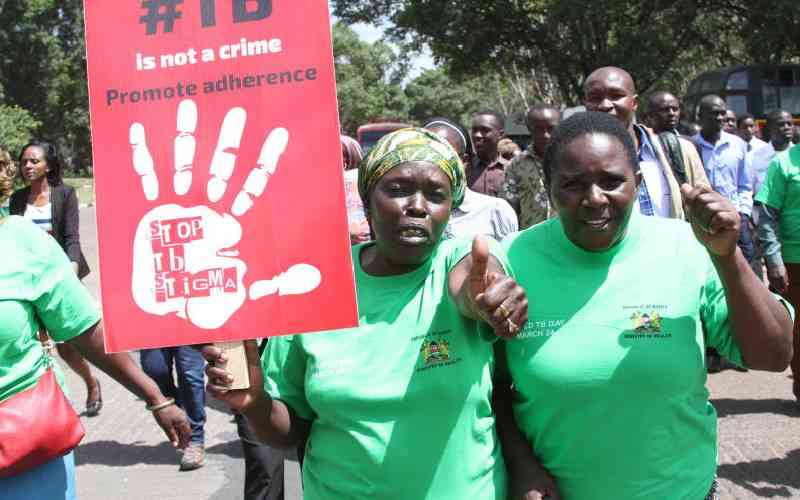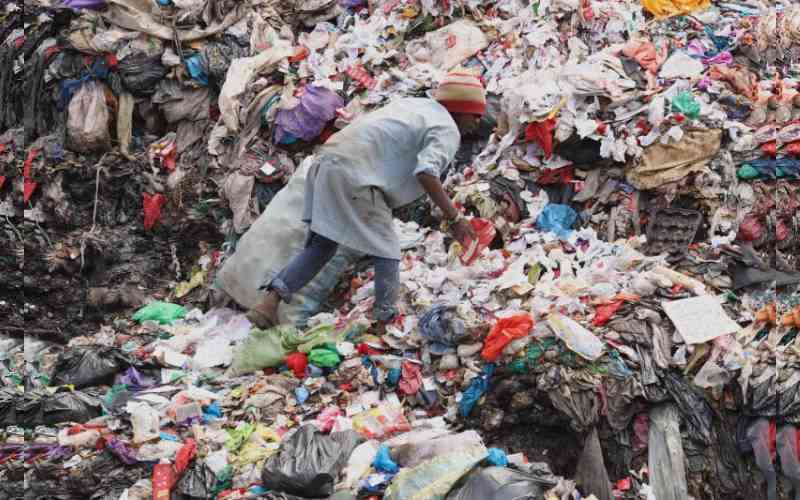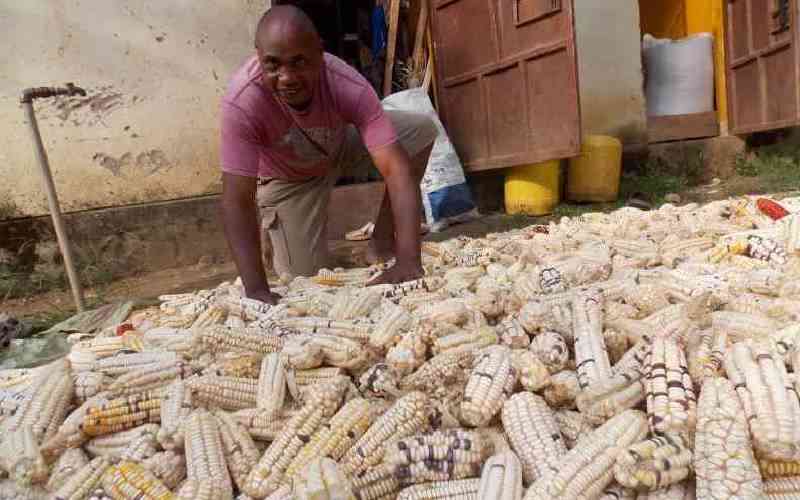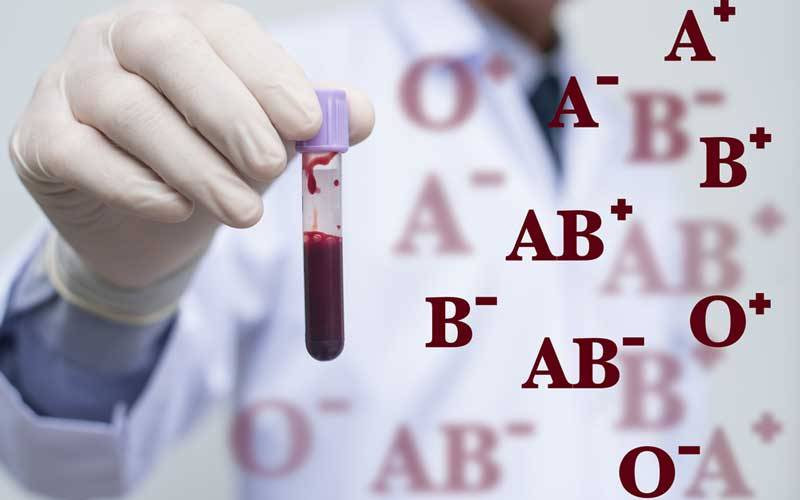
Edith* braved the Friday morning chilly weather amid heavy downpour to take her five months old baby for clinic.
Strapped with her baby on her back, the 14-year-old is accompanied by her 48-year-old mother at Mutuati Hospital in Meru.
She is however in despair - she cannot provide for the baby.
Edith depends on her mother who does casual jobs for financial upkeep.
She dropped out of school in Form One this year after getting pregnant.
- Why I put my daughters on HIV prevention medicine
- Researcher seeks to block HIV at its point of entry, the vagina
Keep Reading
"Being a mother at this tender thing is the most overwhelming task. It pains me more because I cannot afford basic needs for the baby like diapers," regrets the adolescent mother.
Narrating her ordeal to The Standard at the hospital, Edith says she was trapped into a sexual relationship by a man well known to her, and because of curiosity, she had unprotected sex.
Sadly, the man disowned the pregnancy, leaving the girl to struggle single-handedly tending to the baby.
"It is sad to come to reality that I will raise my baby alone. I had sex out of curiosity.
Had I known it would land me into financial and psychological struggle, I couldn't have attempted," she regrates.
At the clinic, she is joined by tens of adolescent and young mothers who share the same struggle in raising their babies.
Brenda*, 21, also depends on her parents to provide for her three babies.
Brenda delivered her firstborn at Form One, at 17 years, and failure to plan for pregnancy saw her deliver the other two children.
The young mother regrets that early pregnancy snatched her a dream of becoming a doctor.
She scored a C minus (C-) at her Kenya Certificate of Secondary Education (KCSE), which she wrote barely two weeks after delivering her second born. She scored 400 marks out of expected 500 in her KCPE.
"Life has turned into a struggle, thanks to being a mother at an early age," says Brenda, tears dripping in her eyes.
Brenda has opted for family planning, to prevent unplanned pregnancies.
"I got into sexual affairs because I wanted to have leisure. I however regret that had I used protection, I couldn't be struggling to feed my babies," adds Brenda.
Experience of the two is not in isolation, as there is a worrying trend of adolescent pregnancies in Meru risking HIV transmission, even as Kenya works towards ending HIV transmission by 2027.
Mutuati hospital is the public hospital leading in number of adolescent pregnancies countrywide.
The facility Prevention of Mother to Child Transmission in charge, Pamela Nkubu, attributed increased cases of adolescent pregnancies to poverty.
In January, the hospital reported at least 63 cases of adolescent pregnancies, cases that have been on the rise.
"In a day, we record about seven to 10 cases of adolescents reporting for ANC, and about five at postnatal clinic," Nkubu says.
This year alone, more than 400 adolescent pregnancies were reported at the public hospital.
Data reveals that the hospital is the leading in the number of adolescent pregnancies in Kenya.
Triggers to teen pregnancies in the county are attributed to poverty, high school pregnancies and deep-rooted culture.
Culturally, acceptance of contraceptive use is low as it is feared to cause infertility.
Surprisingly, the highest numbers of pregnancies captured within the hospital records are incest committed to uncles, fathers, and grandfathers.
Not only are the numbers of adolescent pregnancies worrying but are also critical as they risk transmission of HIV and have lifetime ramifications of the well-being of adolescents, education and their future, notes the National Syndemic Disease Control Council, NSDCC CEO Dr Ruth Laibon-Masha.
According to Dr Masha, Meru is among counties contributing to high rate of new infections across the country.
Most of the HIV cases are documented during ANC clinics.
"It is not acceptable for children to become mothers. Let children be children and not mothers," warns Dr Masha.
According to the CEO, NDCCC is working closely with the ministry of Interior and Coordination, Ministry of Education and Ministry of Sports and Culture to make to fight the vice.
Data collected from hospitals in hospitals on adolescent mothers, she said should be acted upon.
"We want to trigger accountability. Is it okay for elders to keep quiet, the religious leaders are quiet, and teachers are quiet. It is worrying we are living in a culture of silence," regrets Masha.
Adolescents infected with HIV she says are likely to miss out on treatment, and easily transmit the virus to their babies due to lack of knowledge on preventing mother-to-child transmission.
Mother-to-child transmission in the country is dragging at 8.6 percent nationally, against below 5 percent, target set by World Health Organization (WHO).
According to NSDCC report, between January and May 2023, Meru County had the highest proportion of adolescent pregnancies among girls between the ages of 10 and 19 years in the country at 26 percent.
At least 1 out of 3 ANC services is of a child aged between 10 and 19 years.
KDHS report also ranks Meru as the fifth county, leading in cases of teenage pregnancies nationally.
Prevalence of HIV in Meru County according to NSDCC report stands at 2.4 per cent.
At least 30,912 people are living with HIV, among them 1,479 are children aged between zero and 14 years.
In 2022, the county had a total of 543 new infections, among them 100 children and 443 adults.
According to the data, at least 36 per cent of infections occur among adolescents and young adults.
In 2022, 16 per cent of women aged 15 and 49 years reported to have ever experienced violence by a perpetrator in Meru County.
Alongside HIV infections, adolescents aged 10 and 17 years continue to bear high burden of sexual and gender-based violence in Meru and Tharaka Nithi Counties, according to NSDCC.
In 2022, 36 per cent of all Sexually gender-based violence cases reported in Meru County were of adolescents aged 10 and 17 years.
The numbers dropped slightly from 46 and 48 per cent reported in 2021 and 2020 respectively.
In 2022, the county had a total of 809 adolescent pregnancies at the first Antenatal Clinics (ANC) first visit aged between 10 and 14 years, and at least 9,752 pregnancy cases of those aged between 15 and 19 years.
Nationally, at least 41 percent of all new HIV infections in the country occur among adolescent and young people aged between 15 and 24 years.
In 2022, 260,734 adolescent pregnancies were reported in the country, among girls aged between 10 and 18 years, representing 18 percent of all pregnancies.
Out of the numbers, 15, 279 were girls aged between 10 and 14 years, whereas 245, 455 were those in the age group of between 15 and 19 years.
In an earlier interview with The Standard, Joseph Kioko, Statistician, Monitoring and Evaluation Division at NSDCC said as compared to adults, there is low rate of HIV reduction in children.
Also, the uptake of treatment among adolescents remains low, as a result of stigma.
Kenya's HIV prevalence has gradually reduced from 6.4 percent in 2010 to 3.7 percent in 2022.
"There is low uptake of ART in adolescents because of stigma as they fail to identify themselves," said Kioko, adding that the knowledge level among adolescents is also low.
Children, he said, largely depend on their mothers for HIV treatment.
Cases of Sexual Gender Violence (SGBV) among girls in Meru is also high, at 36 percent, whereas 37 percent of all HIV infections are among adolescent and young people aged between 15 and 24 years.
Other counties with the highest proportion of adolescent pregnancies include Narok, Tana River, Samburu, West Pokot, Homa Bay, Kisii, Kitui and Bungoma at 25, 24, 24, 24, 22, 22, 21 and 21 percent, respectively.
 The Standard Group Plc is a multi-media organization with investments in media platforms spanning newspaper print
operations, television, radio broadcasting, digital and online services. The Standard Group is recognized as a
leading multi-media house in Kenya with a key influence in matters of national and international interest.
The Standard Group Plc is a multi-media organization with investments in media platforms spanning newspaper print
operations, television, radio broadcasting, digital and online services. The Standard Group is recognized as a
leading multi-media house in Kenya with a key influence in matters of national and international interest.

